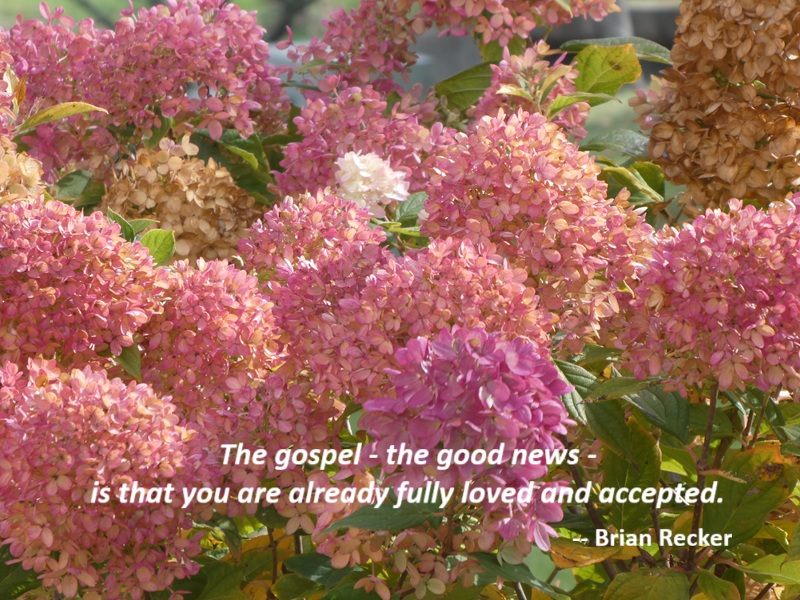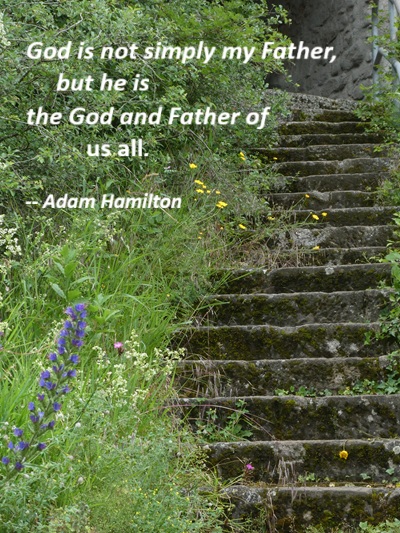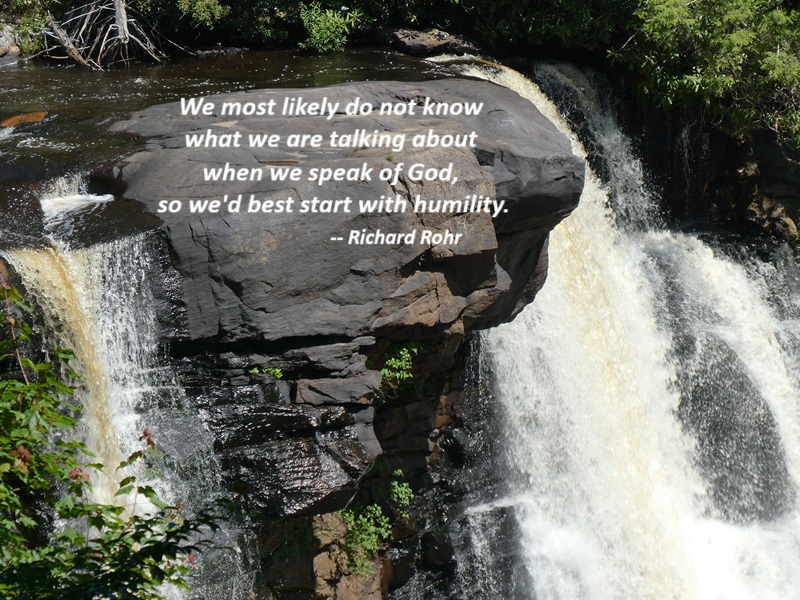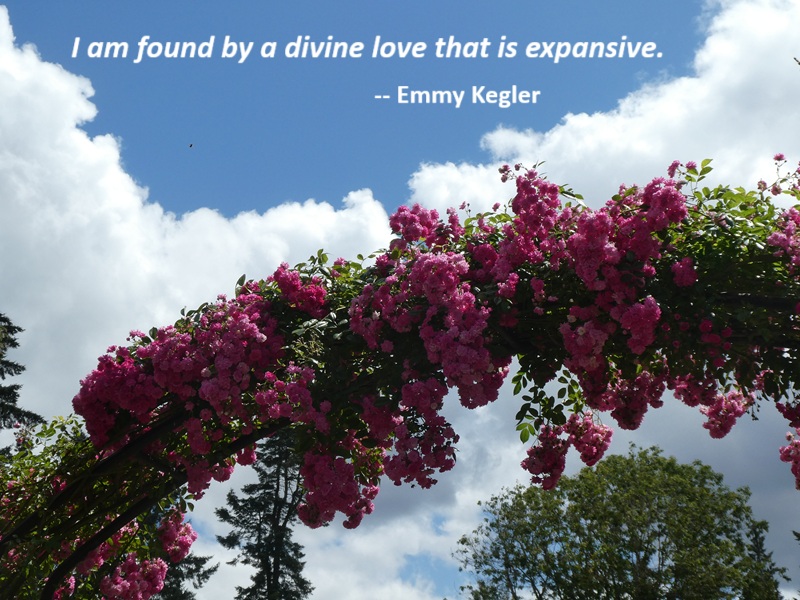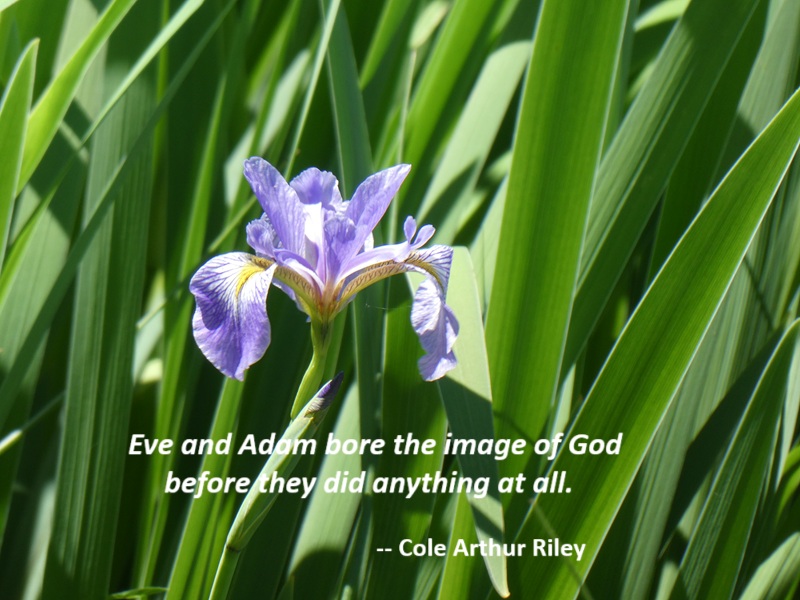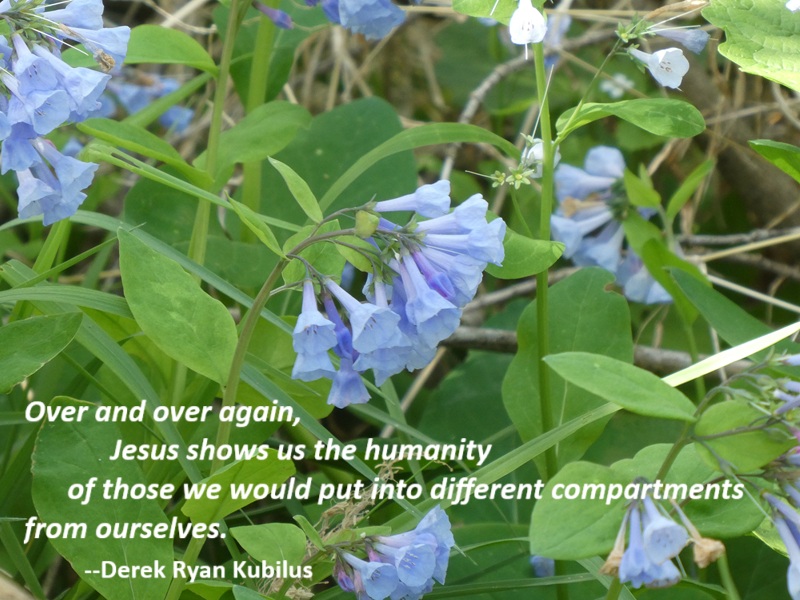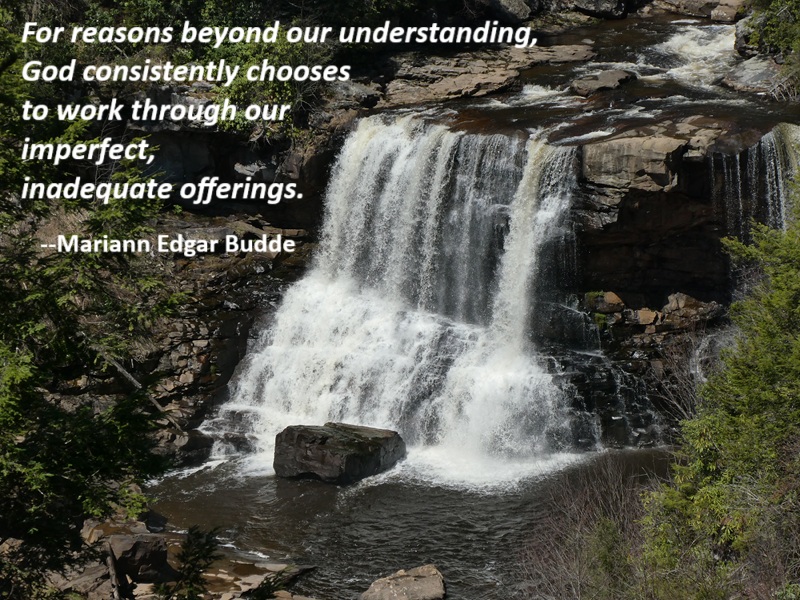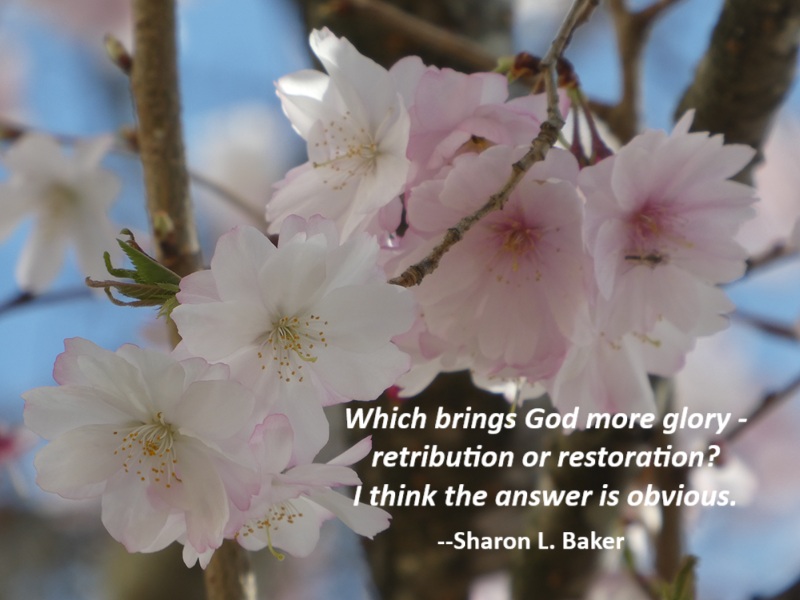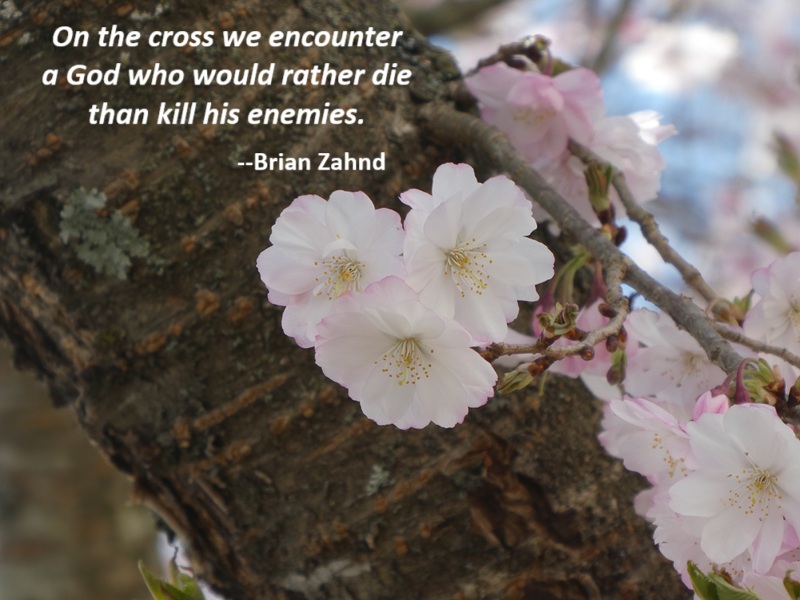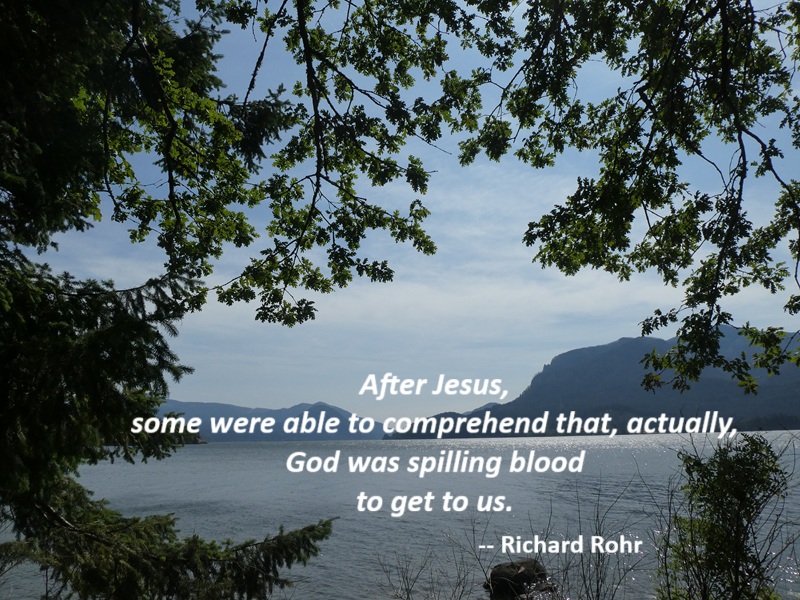
That’s what we mean when we say Jesus had to die for us. It’s not that he had to literally pay God some price, which makes God appear rather petty and powerless. Is God that unfree to love and forgive? Does God not organically and naturally love what God created? It can’t be true. John Duns Scotus taught that good theology will always keep God free for humanity and humanity free for God. Love can only happen in the realm of freedom, and ever-expanding freedom at that. We pulled God into our way of loving and forgiving, which is always mercenary and tit-for-tat. It was the best any of us could do until we sat stunned before the cross.
Quite simply, until someone dies, we don’t ask bigger questions. We don’t understand in a new way. We don’t break through. The only price that Jesus was paying was to the human soul, so that we could break through to a new kind of God. Most of religious history believed that humanity had to spill blood (human sacrifice or animal sacrifice) to get to God, but, after Jesus, some were able to comprehend that, actually, God was spilling blood to get to us. That reversed the engines of history forever, but the human mind still resists that reversal. It is too good to be true.
— Richard Rohr, Yes, And…, p. 79
Photo: Columbia River, June 16, 2025
